There’s bad timing, there’s really bad timing, and then there’s releasing an album called “God Hates Us All” on September 11, 2001. I remember sitting in the cramped office of Riff Raider magazine that morning, a fresh copy of Slayer’s new album in hand, halfway through writing what I thought would be a straightforward review. Then the world changed.
The TV in the corner that usually played metal videos on mute suddenly became the focus of the entire office as we watched the horror unfold in real-time. My half-finished review of Slayer’s newest sonic assault seemed simultaneously trivial and uncomfortably prescient. I mean, what do you do with an album titled “God Hates Us All” on a day when that sentiment felt a little too on-the-nose?
The review never ran. The next issue was delayed, then heavily revised to address the national tragedy, and by the time we got back to regular music coverage, Slayer’s album had been buried in the avalanche of world events. It wasn’t just our magazine—the entire music press essentially hit pause for weeks, and when the industry finally staggered back to its feet, “God Hates Us All” had missed its moment.
Which is a damn shame, because divorced from its unfortunate release date, this was a legitimately strong late-career Slayer album that deserved more attention than it got.
I first listened to an advance copy about two weeks before the official release. The promotional material proudly proclaimed that this was Slayer’s “return to extremity” after the more groove-oriented approach of “Diabolus in Musica.” That album had left some die-hard fans grumbling that Slayer was watering down their sound or, God forbid, being influenced by nu-metal trends. The horror!
From the opening assault of “Darkness of Christ” and “Disciple,” it was clear that Slayer had indeed recaptured some of their earlier intensity, albeit filtered through their more mature, refined approach to songwriting. This wasn’t “Reign in Blood Part 2″—you can’t go home again, after all—but it was definitely Slayer remembering what made them Slayer in the first place.
The production, handled by Matt Hyde (known for his work with Monster Magnet and Porno for Pyros), was noticeably different from the classic Slayer sound. Gone was the reverb-drenched, almost supernaturally evil atmosphere of the Rick Rubin era. In its place was something more direct, more in-your-face, with Kerry King and Jeff Hanneman’s guitars presented with a raw immediacy that emphasized the physicality of their playing.
Tom Araya’s vocals had evolved too. The banshee wail of the early days had given way to a more controlled aggression—a tradeoff of some youthful wildness for veteran presence. And Paul Bostaph, while not Dave Lombardo (a comparison that dogged his entire tenure with the band), brought his own technical precision to the drums, particularly on tracks like “Threshold” where his double-bass work is absolutely punishing.
I vividly remember playing “Payback” for the first time and having to check if my speakers were blown because of how raw and almost deliberately ugly the guitars sounded. This wasn’t the surgical precision of “Seasons in the Abyss”—this was Slayer embracing a certain sonic brutality that reflected the increasingly harsh worldview in Araya’s lyrics.
Those lyrics were another point of evolution. While early Slayer reveled in supernatural horror and the occult, “God Hates Us All” turned its gaze to human atrocity and religious hypocrisy. When Araya roars “I keep the bible in a pool of blood so that none of its lies can affect me” in “Disciple,” it hits differently than the more cartoonish Satanic imagery of their early work. There’s a genuine anger here, a frustration with organized religion that feels personally motivated rather than shock for shock’s value.
I had the chance to interview Kerry King about a month after the album’s release, when the band was trying to get their tour back on track after the national shutdown of live events. The conversation inevitably turned to the unfortunate timing of the release.
“Yeah, it was… not ideal,” King said, master of understatement that he is. “We thought about delaying it or even changing the title, but ultimately decided against it. The album is what it is. It says what it says. It was done before any of that happened.”
When I asked if he was concerned about the album’s legacy being overshadowed by its release date, he was philosophical in that uniquely Kerry King way. “People who get Slayer are gonna get this record eventually. Might take longer now, but good music finds its audience. And if someone’s gonna be offended by the title, they weren’t gonna be Slayer fans anyway.”
He had a point. Slayer had never been about mass appeal or winning over the easily offended. But still, “God Hates Us All” deserved better than to be lost in the shuffle of global events.
Revisiting the album now, two decades later, what strikes me is how well it holds up as a document of a veteran band refusing to rest on their laurels. Songs like “Bloodline” (which gained some exposure through its inclusion in the “Dracula 2000” soundtrack) showcase Slayer’s ability to maintain their essential heaviness while experimenting with structure and dynamics. “War Zone” delivers the furious thrash that die-hards crave, while “Cast Down” incorporates almost industrial elements into their sonic palette.
Is it their best album? No, that title still belongs to “Reign in Blood” or maybe “Seasons in the Abyss,” depending on which hill I’m willing to die on that day. But it’s a far stronger effort than it’s generally given credit for, especially coming at a point when many of their contemporaries had either drastically changed their sound or become sad parodies of their former selves.
The critical reception at the time was mixed, though it’s hard to separate genuine musical critique from the general pall that hung over everything in those post-9/11 weeks. Rolling Stone gave it a tepid review that seemed more concerned with the album’s timing than its content. Kerrang! was more positive but still spent half the review discussing the awkward release date. Even our own coverage, when we finally ran a truncated review months later, couldn’t help framing it in terms of its unfortunate timing.
I’ve always wondered how “God Hates Us All” would be remembered if it had come out a week earlier or a month later. Would songs like “Disciple” and “Payback” have become setlist staples earlier than they did? Would the album have been recognized as the solid late-career highlight that it was? Or would it still have been overshadowed by the ongoing debate about whether Slayer had “gone nu-metal” (they hadn’t) or if they could still deliver the goods without Lombardo (they could)?
In some ways, the album’s reception mirrors Slayer’s broader career trajectory. They were never the biggest of the Big Four in commercial terms. They never had their “Black Album” moment of crossing over to mainstream success like Metallica, never had the technical virtuosity praise that Megadeth received, never had the youthful punk energy of early Anthrax. What they had was consistency—a relentless commitment to being exactly who they were, for better or worse.
“God Hates Us All” exemplifies that consistency. Even in their third decade as a band, even with lineup changes and shifting musical landscapes, Slayer remained fundamentally Slayer. The album has its flaws—the production occasionally veers into muddy territory, and not every experiment pays off—but its strengths far outweigh them.
I’ve owned the album in multiple formats over the years, from the original CD to a limited vinyl pressing that I probably paid too much for on Discogs during a late-night bout of nostalgic record shopping. Each time I revisit it, I find something new to appreciate—a guitar harmony buried in the mix of “Seven Faces,” a particularly venomous vocal performance on “Deviance,” the way “Here Comes the Pain” manages to be simultaneously groovy and caustic.
One of my favorite memories related to this album came about five years after its release. I was at a small club show in Seattle—not Slayer, some local band I don’t even remember—and ended up chatting with this kid at the bar who couldn’t have been more than 21. He was wearing a worn-out “God Hates Us All” tour shirt, and I commented on it.
“Oh man, this album changed my life,” he said with absolute sincerity. “It was the first Slayer record I ever heard.”
It had never occurred to me that “God Hates Us All” could be someone’s entry point to Slayer, their “Reign in Blood” or “South of Heaven.” But why not? Every fan starts somewhere, and music doesn’t come with an expiration date.
“What grabbed you about it?” I asked, genuinely curious.
“It’s just so… honest, you know? Like they’re not trying to be anything but what they are. I worked backward from there, got into their older stuff, but this one’s still special to me.”
That conversation has stuck with me over the years, a reminder that albums live beyond their release cycles, beyond their critical reception, beyond even the circumstances that might initially overshadow them. Good music finds its audience eventually, just as Kerry King predicted.
As Slayer has now retired from touring, their catalog has naturally entered the phase of historical assessment. When people talk about their legacy, “God Hates Us All” often gets relegated to footnote status—the album with the unfortunate release date, the one with that awkward title given what happened that day.
But it deserves better. It deserves to be remembered as a document of a legendary band still finding new angles on their sound two decades into their career. It deserves recognition for tracks like “Disciple” and “Payback” that stand alongside their classic material. It deserves to be judged on its musical merits rather than its coincidental timing.
So if you’re a Slayer fan who passed on this album back in the day, or if you’ve come to their music more recently and have focused on the classic ’80s material, do yourself a favor and give “God Hates Us All” a proper listen. Divorced from its historical context, from the debates about production and lineup changes and genre purity that dominated metal discourse in the early 2000s, it stands as a testament to what made Slayer special: their absolute commitment to their vision, their unflinching confrontation of uncomfortable realities, and their ability to translate rage and disillusionment into cathartic, necessary music.
The world may have changed on September 11, 2001, but Slayer’s devotion to their craft never did. And two decades later, that counts for a lot.
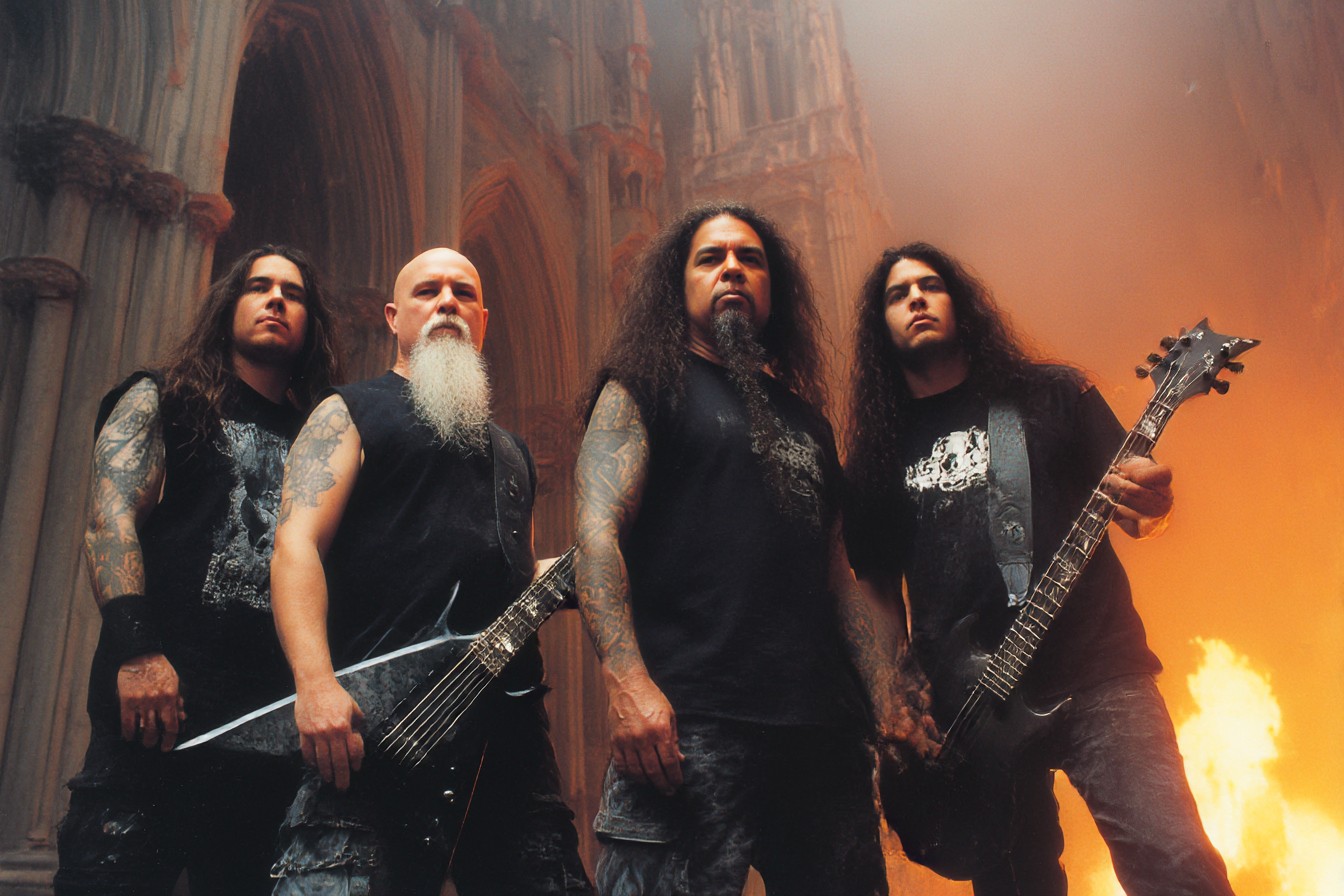
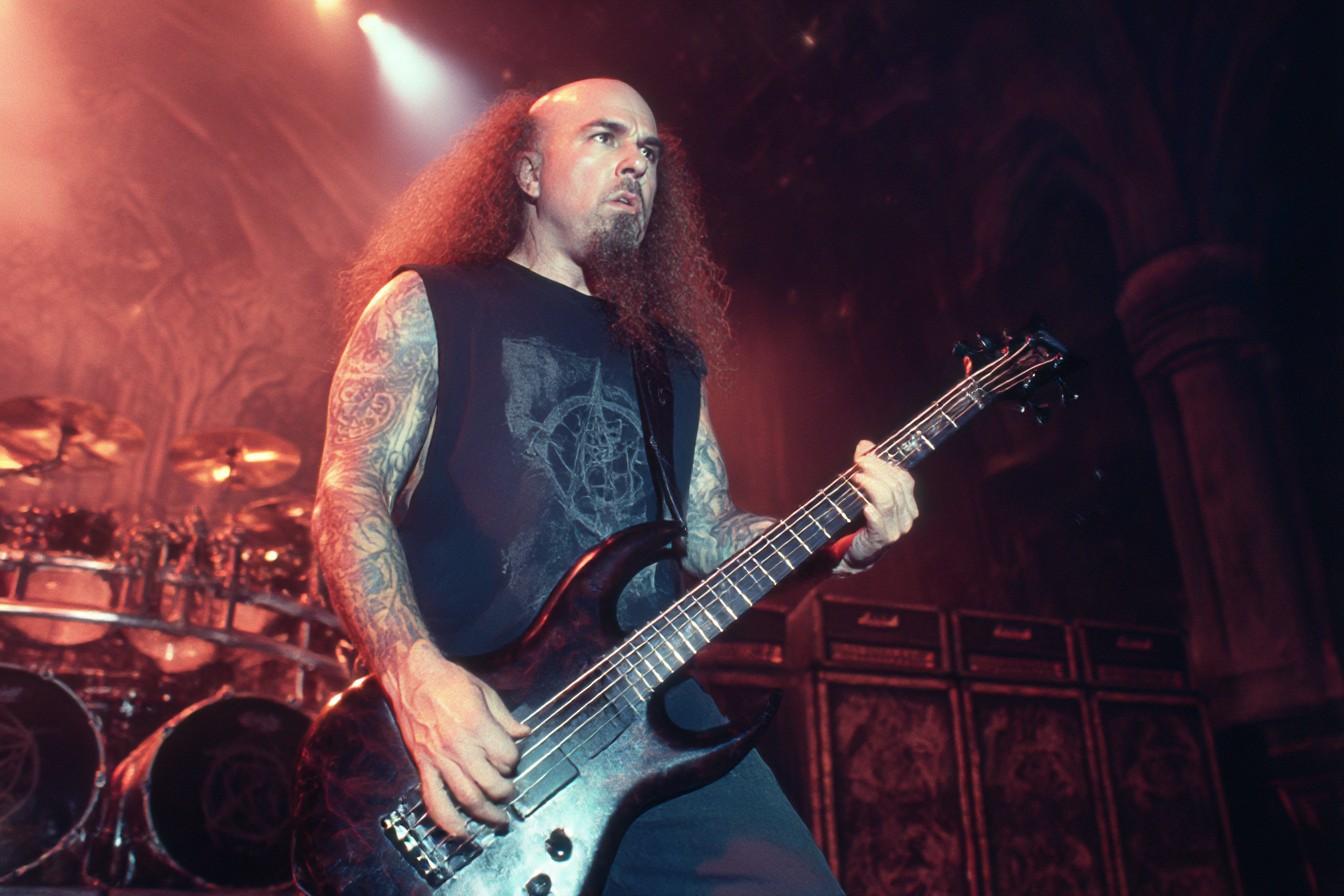
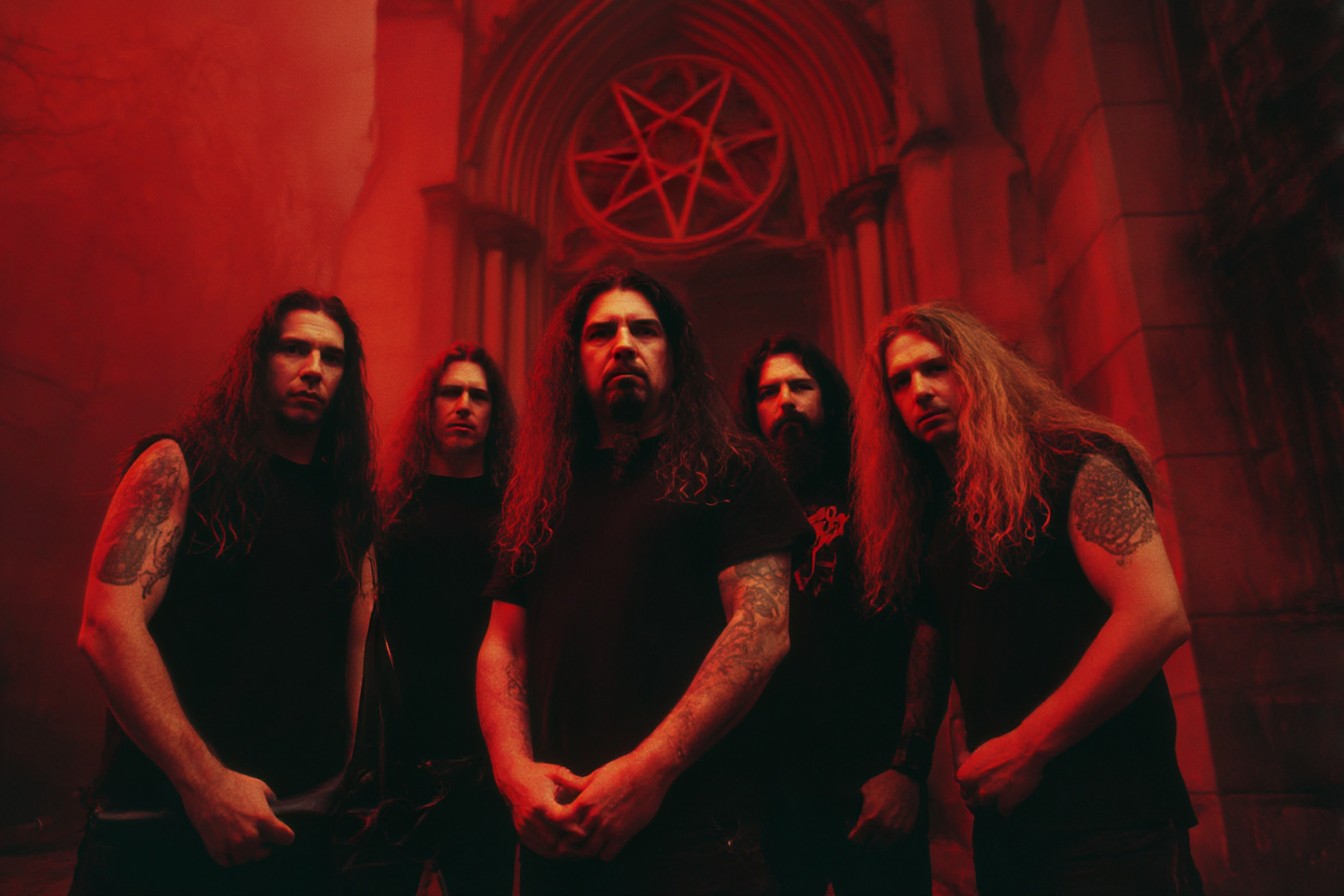

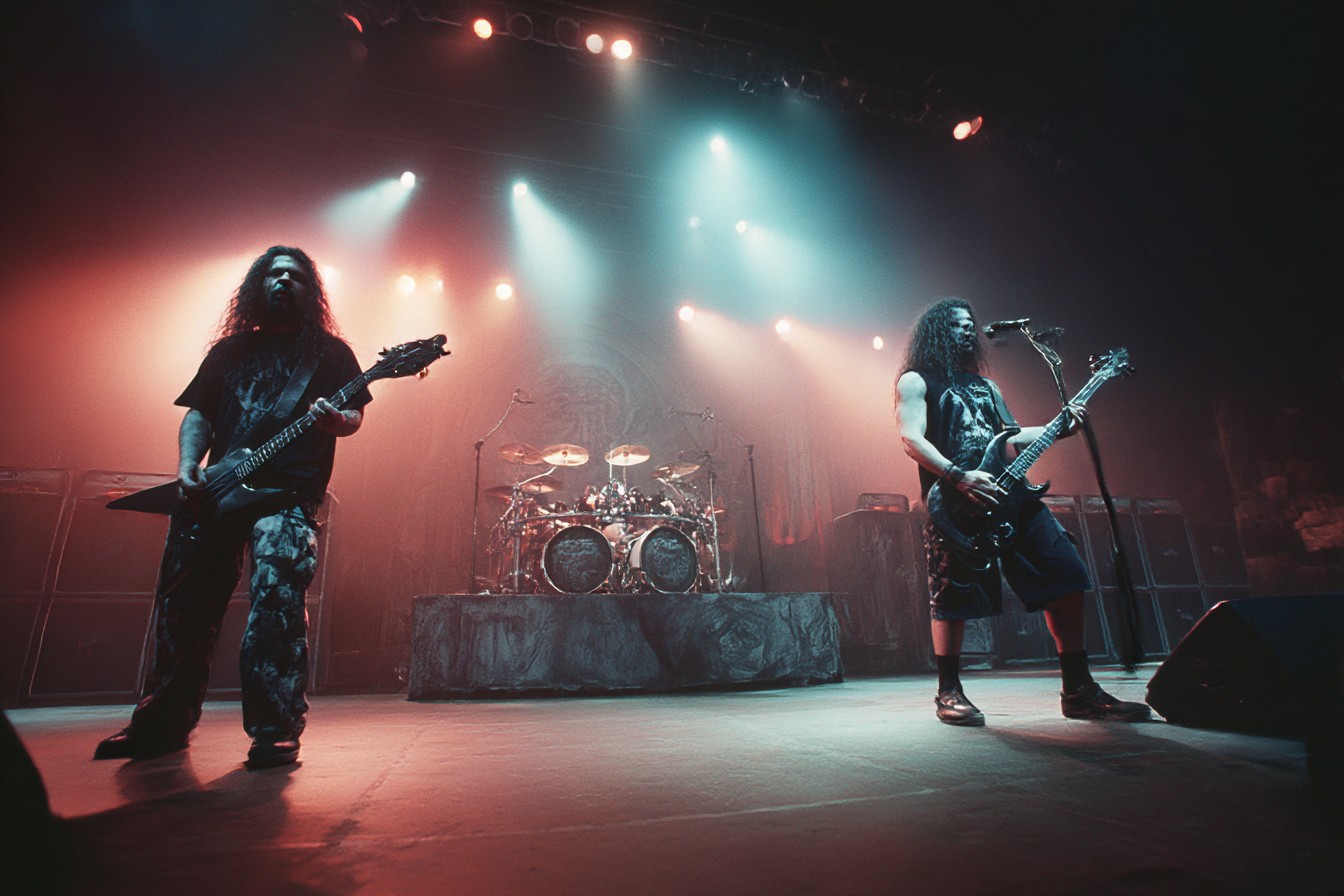
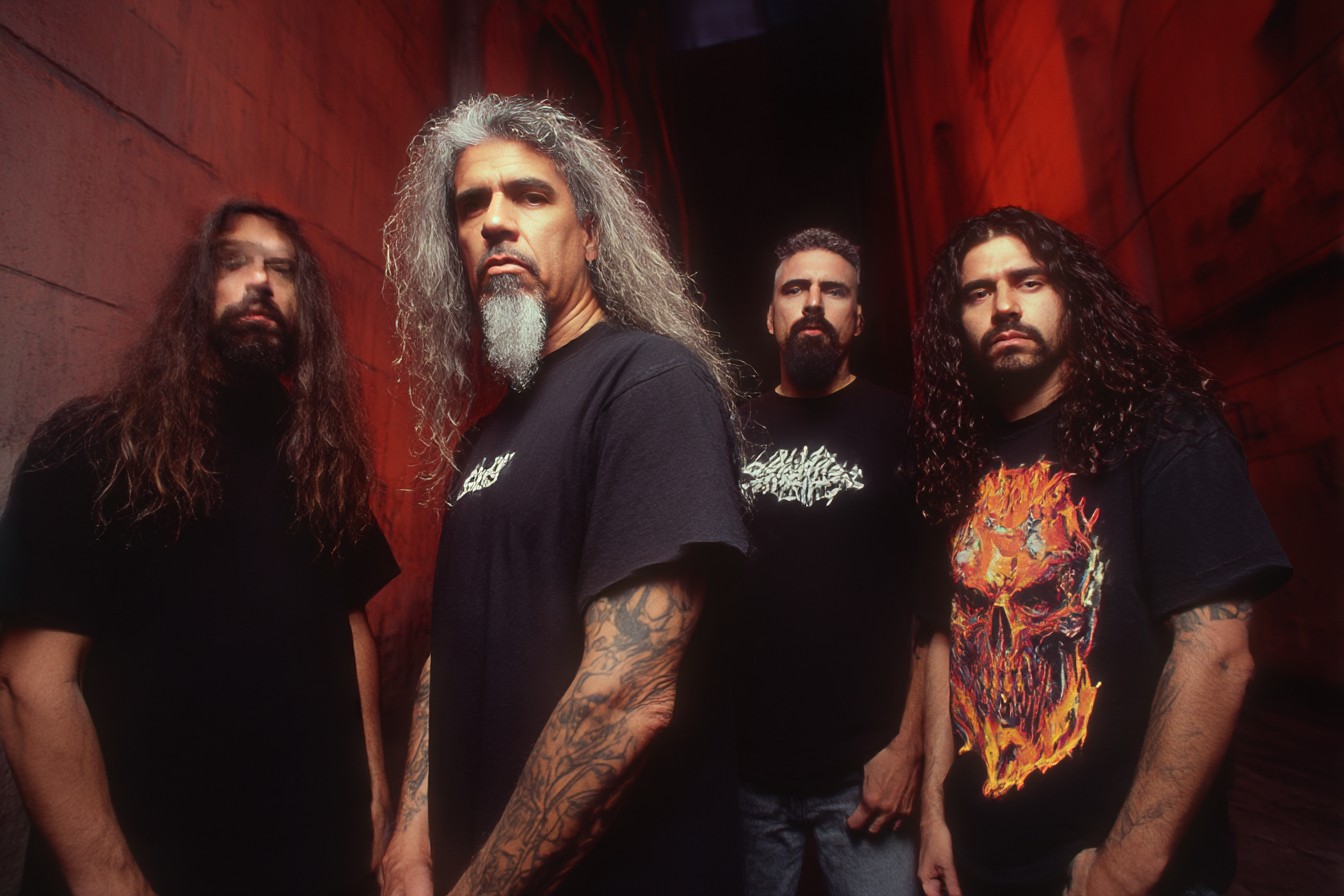
Leave a Reply